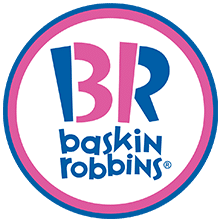WHAT ARE THE REQUIREMENTS FOR FOOD HANDLER TRAINING IN ALABAMA?
While Alabama state law does not mandate a food handler card, many local health departments and employers require it.
Check with your county health department or employer for specific requirements.
Food Handler

- Approved and ANSI National Accreditation Board (ANAB) Accredited in Alabama

Food Handler Reviews
4.9
Great course!
This course was quick and informative!
Great
Great course for good price.
Easy to follow
Having the video and audio play along helped me retain the information given to me.
No Title
Food handling coarse
Tough but very informative test
Informing
Learned a lot
Very long
Very long and efficient. I feel so informed and capable.
Amazing!
Easy, interactive, cheap, and fun
Me gusto la informacion
Muy buena information de una itulidad¡
Unformacion util
Me gusto la informacion ,es de gran utilidad y importancia¡
No Title
No Title
Food Handler
It was not hard just have to re-read the question before answering
Great!!!
Long but very knowledgeable
Easy-Peasy
If you can pay attention it will be super easy, important things will be repeated several times throughout the course! Don’t be afraid to go over the same thing again if you need to, it doesn’t take very long!
No Title
No Title
No Title
No Title
No Title
Alabama Food Handler Card
- Approved and Accredited in Alabama
- 100% online accessible 24 hours a day, 7 days a week
- Course Duration: 1.5 Hour
- Owners/Managers: Manage, track, and report Employee Progress
- Certificate of Completion upon successful completion of Final Exam
- Exam Passing Score 70%
- 2 chances to pass the 40 question final exam
- Available in English and Spanish
OUR CLIENTS



















BENEFITS OF TRAINING
PREVENT
Education helps prevent, minimize, and eliminate foodborne illnesses and food hazards.
AWARENESS
Improves critical thinking and decision-making to prevent unsafe food handling practices.
ELIMINATE RISKS
Training helps reduce or eliminate food safety hazards before they become major issues.
MINIMIZE VIOLATIONS
Recognizing, mitigating, and reducing food safety risks improves compliance with health regulations.
INCREASE PRODUCTIVITY
Fewer food safety complaints lead to a more efficient and productive workplace.
ENHANCE WORKPLACE SATISFACTION
Serving safe food boosts customer confidence and employee morale, creating a better work environment.
We proudly provide food handler certification across Alabama, including key counties such as Jefferson…
WHY CHOOSE US
Satisfaction Guarantee
Online Interactive Course
Meets and Exceeds State Guidelines
Price Match Guarantee
Owners and Managers: Manage, Track and Record Employee Progress
FREQUENTLY ASKED QUESTIONS (FAQs)
To earn a food handler card in Alabama, you must complete a food safety training course from an ANSI National Accreditation Board (ANAB) accredited provider and pass the final exam. Online courses are available for convenience.
Most Alabama food handler cards are valid for two to three years, depending on the provider. Be sure to check with your training provider for specific renewal requirements.
While Alabama state law does not mandate a food handler card, many local health departments and employers require it. Check with your county health department or employer for specific requirements.
Alabama does not have a statewide law mandating employers to cover the cost of food handler training, exams, or related fees. However, some counties or employers may have specific policies, so it’s best to check with local health authorities or your employer.
The cost varies depending on the provider, typically from $7 to $15. Some providers like AAAFoodHandler.com, offer competitive pricing with automatic group discounts for businesses.
Most training programs take around 2 hours to complete. The course is self-paced, allowing you to finish it on your schedule.
Yes! You can complete the entire training and certification process online. Once you pass the exam, you can instantly download and print your food handler card.
Food handler training is recommended for anyone working in food service, including restaurant staff, kitchen workers, bartenders, and food truck employees. Some cities and counties may have specific requirements.
The exam typically consists of 40 multiple-choice questions. A passing score is usually 70% or higher, and most providers allow at least two attempts.
While Alabama does not have a statewide requirement, some counties or employers may set a timeframe (such as 30 days) for new employees to complete training.
Some counties or employers may require additional steps, such as registering your certificate with the local health department. Always verify local regulations before beginning work.
If your certificate has expired, you must retake the food handler training course and pass the exam again. Some providers allow reprinting of a valid certificate if needed.
Most online training programs allow access for up to 90 days, letting you review materials as needed before renewal.
Yes, Alabama requires at least one Certified Food Protection Manager in each food establishment. This certification must be obtained through an ANSI National Accreditation Board (ANAB) accredited program.
Many accredited training providers offer extra food safety materials, including guides, videos, and infographics on:
- Proper Cleaning and Sanitizing – How to safely clean food contact surfaces
- Handwashing Techniques – Best practices for hygiene and glove use
- Temperature Control – Safe cooking and storage temperatures to prevent foodborne illness
- Food Hazards – Understanding chemical, biological, and physical contaminants in food

Our team holds more than 35 years of experience in food handler, food manager training and management.
Contact Information
Our Guarantees
Copyright © 2025 AAA Food Handler • www.aaafoodhandler.com • (714) 592-4100
• www.aaafoodhandler.com • (714) 592-4100